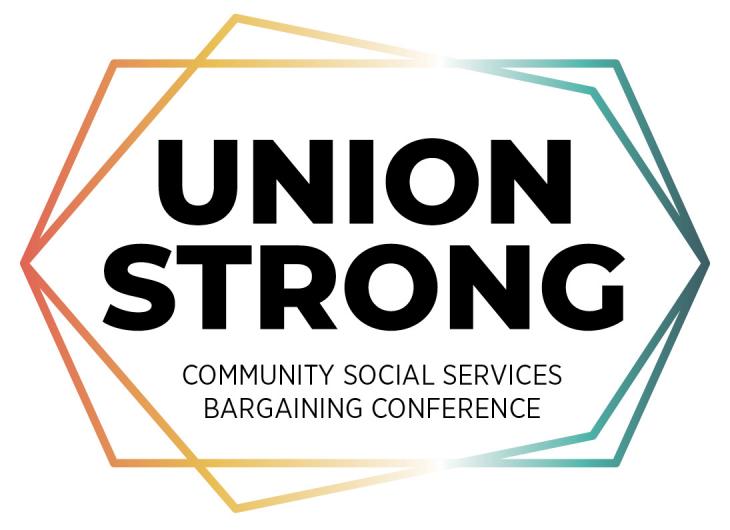
About two dozen delegates, representing HEU’s 1,500 community social services (CSS) members, gathered on Zoom October 13 and 14 in preparation for the next round of contract negotiations.
During the two-day bargaining conference, they discussed their work; shared the extra challenges of doing their jobs in the face of COVID-19; and the role they play in delivering vital care and services.
“The services you provide to some of our most vulnerable and marginalized citizens may not be in TV commercials or talked about in mainstream news cycles, but our health care system could not survive without you, and our communities could not thrive without you,” said HEU secretary-business manager Meena Brisard in her bargaining address.
Working primarily in group homes, day programs, community inclusion, and transition houses, CSS members include community support workers, residence workers, mental health workers, counsellors, activity/program workers, life skills development and clerical workers, among other occupations.
Delegates debated and voted on bargaining demands, identified priorities, and elected a new bargaining committee (Cheryl McLachlan and David Huespe; alternates: Olga Torres Andino and Louise Peloquin).
HEU community social services bargaining spokesperson Christina Lloyd-Jones provided a comprehensive overview of the history of bargaining in the sector. And participants heard solidarity greetings from HEU’s president Barb Nederpel and financial secretary Betty Valenzuela.
“I want to thank you for doing difficult work that’s often invisible and unrecognized,” said Nederpel. “Especially during the pandemic, there’s been an increase in depression and anxiety, alcohol and drug use. And living in the Interior, we were also faced with devastating forest fires that deeply impacted our communities and health care systems. I know that your jobs have been crucial in helping people get back on their feet.”
Some bargaining themes included: equity/diversity; 100 per cent paid sick leave; stability; recruitment and retention; union rights; health and welfare benefits; respectful workplace; and wages, premiums and allowances.
“Bargaining is a very important process for working people,” said Valenzuela. “It allows us to make gains in wages, benefits and working conditions. And what happens at a bargaining table has broad impacts, with a ripple effect, on the lives of our co-workers, our families and our communities. Bargaining is part of the foundation of a union’s democracy, and it’s something the labour movement holds sacred.”
“Even though we have a progressive government in power, there are a lot of competing priorities and pressures on their finances as a direct result of the pandemic, wildfires, and the poisoned drug crisis,” said Brisard. “There’s uncertainty about the future costs of addressing many of these competing priorities. But there can be no uncertainty about our solidarity.”